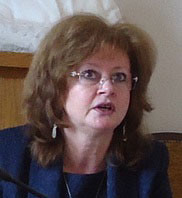Between 25% and 30% of all Bulgarians work in the gray economy, a survey of the Bulgarian Academy of Sciences shows. According to the Bulgarian scientists, there are more prerequisites for implementation of gray practices in a less developed economy. Bulgaria ranks last in the EU incomes ranking.
People agree to work jobs that do not comply with the labor legislation due to two main reasons – the lack of permanently functioning enterprises and low incomes. On the other hand, people don’t have too much choice in many Bulgarian towns and villages. Tourism, infrastructure construction, information technologies, subsectors of the light industry such as perfumery and cosmetics, agriculture and transport often fall in the gray sector, Professor Emilia Chengelova from the Institute for The Study of Societies and Knowledge at the Bulgarian Academy of Sciences told Radio Bulgaria.
 Most of the gray practices concern the labor law and the most common one is employment without labor contract, Professor Chengelova went on to say. Employment with fictitious contract is also a very common practice- the employee receives a certain amount of taxable income and gets the rest in cash. This is the employment practice which refers to the so-called additional non-taxable cash remuneration, which reaches 30%-40% in some sectors. Other typical gray phenomena are linked with the fiscal legislation- in these cases invoices are not issued, some financial transactions are not booked, payment of taxes and customs duties are evaded.
Most of the gray practices concern the labor law and the most common one is employment without labor contract, Professor Chengelova went on to say. Employment with fictitious contract is also a very common practice- the employee receives a certain amount of taxable income and gets the rest in cash. This is the employment practice which refers to the so-called additional non-taxable cash remuneration, which reaches 30%-40% in some sectors. Other typical gray phenomena are linked with the fiscal legislation- in these cases invoices are not issued, some financial transactions are not booked, payment of taxes and customs duties are evaded.
The information that gray sector reached extremely high levels of over 35%-40% over the years and has prevailed over the official economy has been made public in the past decade or so, Professor Emilia Chengelova added. Thus, the authorities undertook some measures under the pressure of labor unions and employers’ organizations which h resulted in real time connection of cash registers, legislative amendments incriminating the evasion of social security payments above certain threshold, etc.
I have never heard of anyone being convicted of similar activities and this is one of the biggest problems in this country, because the society has a critical attitude towards the legislation and is ready to violate it when there is a lack of control and punishments, the Bulgarian economist further said. Besides, the lack of visible sanctions and publicity of the measures undertaken against violators somehow motivates some employers to say-well I can do that as well since I can avoid punishments.
The benevolent attitude of the Bulgarians towards the gray practices is explained by the scientists with the phenomenon called anomie.
Anomie in societies is a condition of instability resulting from a breakdown of standards and values, Professor Emilia Chengelova explains. We have witnessed a serious breakdown of values since 2000. In the beginning people did not follow the moral imperatives. At some point, however, they transferred their attitude to statutory law. This is very dangerous, because it results in a society of extremes, moral indifference, harsh violation of law, total negligence, etc. We need an example of highest level and some EU countries are trying to show that the ruling elite abide by the law. The self-demanding elite serve as a good example, but we cannot expect a relevant behavior of the ordinary people, if the elite foes not lead by example.
Professor Emilia Chengelova shows moderate optimism on whether gray practices will decrease in the future, despite the psychology of the Bulgarians-some people have an attitude of subterfuge and fail to comply with the law. However, Professor Chengelova contends that the authorities need to start working urgently with the young generation, because these people are critical of the social reality and are rather willing to develop new rules, rather than following the existing ones.
English version: Kostadin Atanasov
Photos: archive and Diana TsankovaIn 2023, the share of young people aged up to 29 neither in employment nor in education, stands at 13.8%, as compared to 15.1% a year earlier. Compared to the other EU countries, this percentage remains high. 1/7 th of the young people who are..
Joining the Eurozone later in 2025 is a possible scenario, and at this stage, it is a more likely one, Bulgarian National Bank Governor Dimitar Radev said for BTA in Washington during the Spring Meetings of the World Bank Group and the International..
She is beautiful, young and educated and has the qualities for a successful career on the catwalk or in the advertising business! But she chose to raise buffaloes in a Bulgarian village. Tsvetelina Nedkova graduated with honors from..
Joining the Eurozone later in 2025 is a possible scenario, and at this stage, it is a more likely one, Bulgarian National Bank Governor Dimitar Radev..
In 2023, the share of young people aged up to 29 neither in employment nor in education, stands at 13.8%, as compared to 15.1% a year earlier. Compared..

+359 2 9336 661
